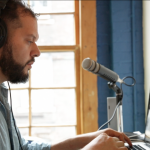The etiquette of the tweet greet
Journalism students are criticized for using the tweet greet—asking a source for an interview via Twitter—as a first attempt at making contact. Dan Reimold, assistant professor of journalism at the University of Tampa in Florida, blogged that the tweet greet—not to be mistaken for crowdsourcing—must be the last resort, if resorted to at all. But tweeting for an interview can, at times, be the best option and, dare I say, should sometimes be the first.
When it works
Sonia Verma, correspondent for The Globe and Mail, tweets locals for interviews when she’s in Egypt. This is practical in a country under political unrest where activists aren’t willing to advertise their full or real names, their traceable email addresses or their phone numbers. But if you tweet them and they are willing to speak with you (because your Twitter profile leads them to legitimate and trustworthy information), then let the sharing of information begin.
Tweet greeting could easily be used domestically to ask witnesses of any event for an interview; not every person worth interviewing links to their blog via Twitter and subsequently their email address—the route Reimold blogged journalism students should follow to contact a source. And there are a lot of tech savvy professionals who respond more quickly to Twitter than email.
When marketing or PR people stand between you (the journalist) and the person you want to interview with little to no hope of budging, you are what I refer to as being “j-blocked.” But luckily, said source manages her own Twitter account. The key is to gauge based on Twitter activity, whether the source will respond. (I would rather call or email for interviews with celebrities, government officials, CEOs and the like.)
When it fails
The major problem with tweet greets, even when proper etiquette is followed, is the journalist risks broadcasting her story and sources to her competitors. Journalists do follow other journalists on Twitter. A colleague of mine who works for one of Canada’s national dailies told me he used Twitter to find another angle on a story his competitors already had; so, the story was already out there. I tweeted Michelle Shephard, the Toronto Star’s national security reporter, to find out if she ever used Twitter to ask a source for an interview. Yes, she has, but she usually messages the person directly, which is private. The flaw is that the person has to already follow her on Twitter for direct messaging to work, a problem that is non-existent with email or Facebook.
But at the end of the news cycle, journalists—students or not—will do what they need to do to get that interview. I hope they do it well.











